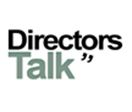Non-Standard Finance plc (LON:NSF) is the topic of conversation when Hardman and Co’s Financial Analyst Mark Thomas caught up with DirectorsTalk for an exclusive interview.
Q1: Non-Standard Finance’s results had a lot in them, and the company has had a lot more attention than usual. What is your summary of the most important points they raised?
A1: The key takeaways from NSF’s results and presentation were i) solid underlying 2019, with normalised operating profits up 20% and lower impairments to revenue, ii) £60m cash on results day ‒ April and May cash-generative, and iii) current collections 86% of pre-lockdown levels. NSF is a going concern and is considering an equity raise to help fund additional growth.
On the downside, we note i) statutory loss, with further goodwill impairments and the costs of the aborted PFG deal, ii) material uncertainty arising from COVID-19 effects and so, possibly, its going-concern status, and iii) operating performance must improve for further securitisation-line drawings (waiver extended on 29 June).
Since the results announcement, on 15 July, NSF issued a further trading update, saying that, in June, collections were at 89% of pre COVID-19 levels, and it had generated a further £11.9m of cash in that month alone. Lending in all three divisions is continuing to build using revised scorecards, and this is reducing the rate of decline in the overall loan book.
Application volumes have been strong and, based on the current trajectory, the company expects that the overall loan book should stabilise during the fourth quarter of 2020.
Q2: You say there are a range of outcomes. Taking the upside first, what are the opportunities the group has now that it did not have before?
A2: Current conditions present the same upside opportunities as we have seen in past downturns.
First, there is increased demand, as more mainstream borrowers are pushed into the non-standard space.
Second, there is less competition, as mainstream banks have lower appetite to lend, non-bank lenders can have difficulties accessing finance themselves, international operators withdraw to their home countries, and some competitors will undoubtedly fail (Sunny Loans was the latest to announce that it had appointed administrators on 29 June 2020 ‒ it had 50,000 UK customers).
Third, we are going to see increased lending spreads, reflecting more demand and less competition.
These factors combined could see an increase in profit, which more than offsets higher impairments on loans written before COVID-19 that move into arrears, which is what PFG has delivered in previous recessions. The issue for NSF today is how to exploit the opportunity and lend more, but to maintain a tight grip on impairment and costs. Access to funding could be unlocked by further equity support, and so the group has started discussions with shareholders as to their appetite to fund a more ambitious plan than the current modest-growth, base-case scenario. Progress on this was, in mid-July, described as encouraging.
Q3: And the downside? In particular, what can you tell us about Non-Standard Finance’s going-concern status?
A3: You are absolutely right. The eye-catching risk in the results relates to its going-concern status. It is important to recognise that, in NSF’s base-case scenario, where there is some muted lending and a “reasonable” macroeconomic downside scenario, the group would not breach any further covenants in the next 12 months and would not need to draw down further from the securitisation facility. No further covenant waivers would be required from its lenders in order to remain viable, and that is why it has a going-concern status with the results.
However, the directors felt that the range of assumptions made in both the base-case and downside scenarios were such that, given the uncertainties around the idiosyncratic impact of COVID-19, there remained a material level of uncertainty around the impact on the group’s ability to meet its covenants and, if they weren’t met, the likelihood of a further waiver being granted by the lenders, as well as the full impact on the group’s balance sheet. NSF noted that it has received waivers to cover reasonable deviations from the base-case scenario; ones that would be required to fully cover the downside scenario are beyond what is currently envisaged in the negotiations. The risk lies in its funding, rather than solvency, and arises because the funding lines contain covenants on things like collection rates. To put the risk into perspective, June collections were better than the previous months – so the trend in the operational parameters is positive.
In the short term, we are forecasting a pre-tax loss of £27m. The book has been shrinking (albeit there is now visibility on when this will reverse), as repayments have been made, but new lending has been severely restricted. As NSF focuses on lower-risk new lending, its margins are coming under pressure. There will be a sharp rise in impairment and, while we expect costs to fall, this will not be enough to offset the other factors. We expect modest profitability in 2021 in our base-case scenario. We give investors a range of scenarios in our report.


